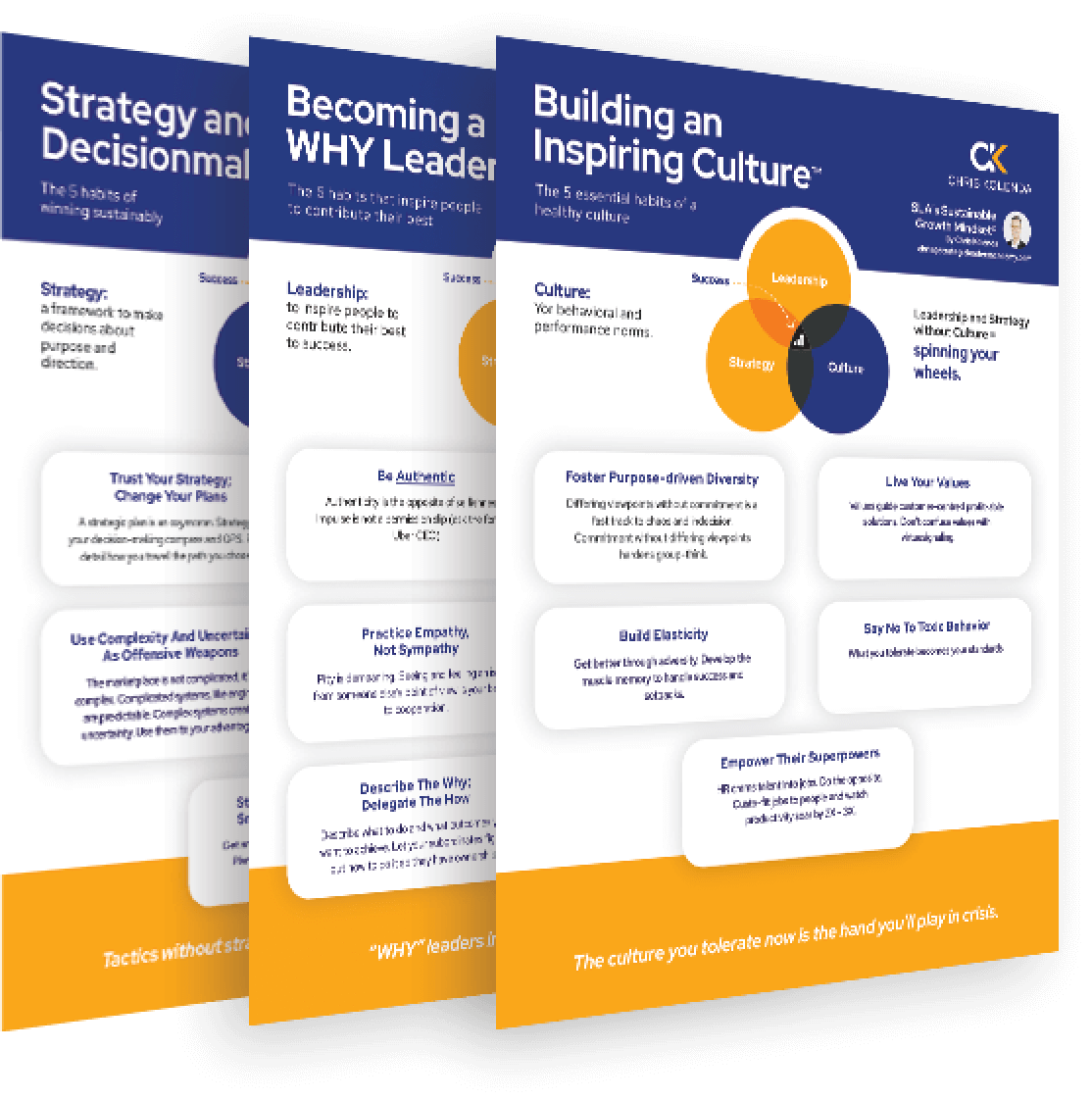Leading in an AI World: 4 Ways to Repair the Trust Crisis
Have you considered how AI will affect relationships in your workplace?
If not, it’s time to get ahead of the curve. Information technology provides massive benefits to society and your business, but its misuse has damaged relationships and created a trust crisis.
Is that person really working all of those hours?
Is that “Hey Chris” email for me or personalized spam?
Why do my employees make more than I do?
Will a bot take my job?
Why does the CEO, who gets mega-millions, say she cares about us but can’t afford to give us raises or training?
It’s not that our company’s leaders won’t keep their promises; it’s just that they haven’t.
AI can widen the breach; it can also repair it.
We live in an era where AI isn’t just a tool—it’s becoming a co-worker.
AI exposes contradictions, say-do gaps, and potential unfairness while creating deep anxiety and uncertainty. This trust crisis corrodes relationships, impedes performance, and sours your company’s culture.
Why should you care? High-trust companies reportedly outperform their rivals by nearly 300%.
And yet, how do you sustain trust as AI takes on more roles while raising troubling questions about credibility, agency, and employee value?
Here are four behaviors that will inspire employees to contribute their best even as AI’s role expands (my chatbot helped me craft these ideas after I gave it suitable prompts).
- Be Transparent with AI Integration: Remove the enigma surrounding AI. Educate your team on extracting the best from AI while recognizing its limitations. Your employees’ ability to provide actionable prompts will make AI an ally in your mission, not a mystery.
- Boosting Human-AI Innovation: AI can crunch numbers but can’t think outside the box. AI’s efficiency plus human creativity reduces risk and improves innovation. Leaders who promote critical thinking will get the best from AI while limiting garbage-in-garbage-out problems, drift, and look-a-like challenges.
- Creating Ever-Better Personal Interaction: Relationships become more important with remote work and distributed teams. You have a reduced margin for error, making every human touchpoint critical for building trust and unity. Face-to-face interactions in high-quality and innovative off-sites accelerate belief in you and each other.
- Gaining Buy-In & Proactive Accountability: Move away from AI as a surveillance tool. Build a culture where leaders use AI to help employees improve future performance and spark their discretionary effort.
You can anticipate AI’s effects on workplace relationships and develop behaviors that maximize its capabilities while limiting the downsides.
Anticipatory action on your part becomes compounding interest as trust increases performance, which enhances confidence in your company’s future. Wait, and you’ll regret the bill for corrective action.
Are you ready to get ahead of the curve? Schedule a call or email me for information about my keynotes and workshops on building trust in an AI world.










